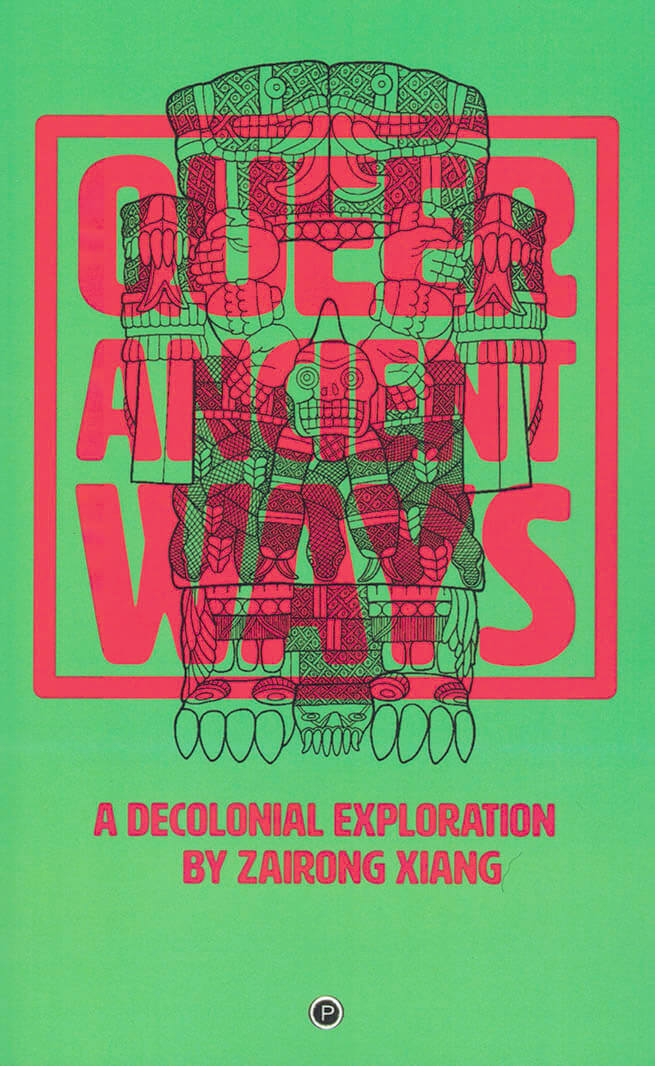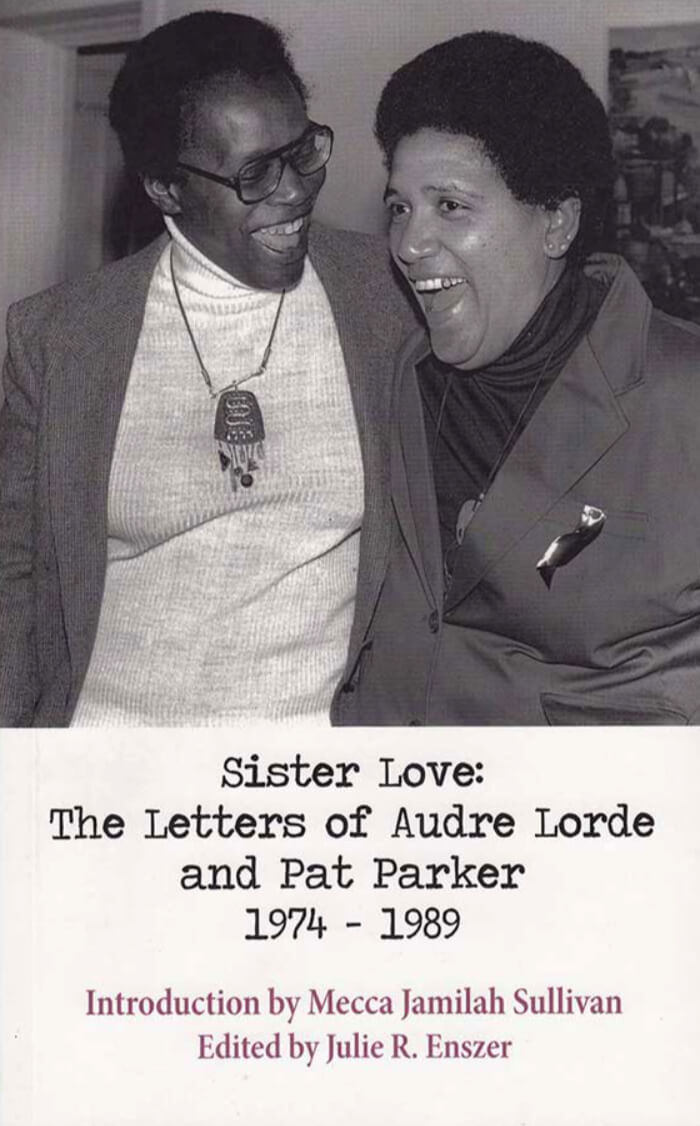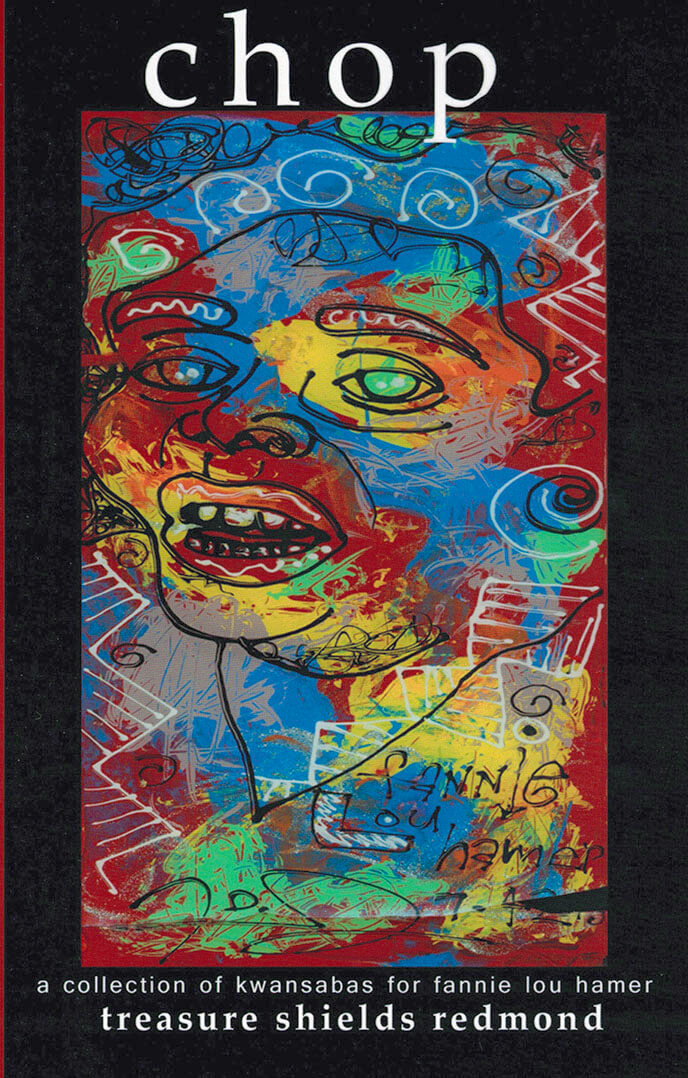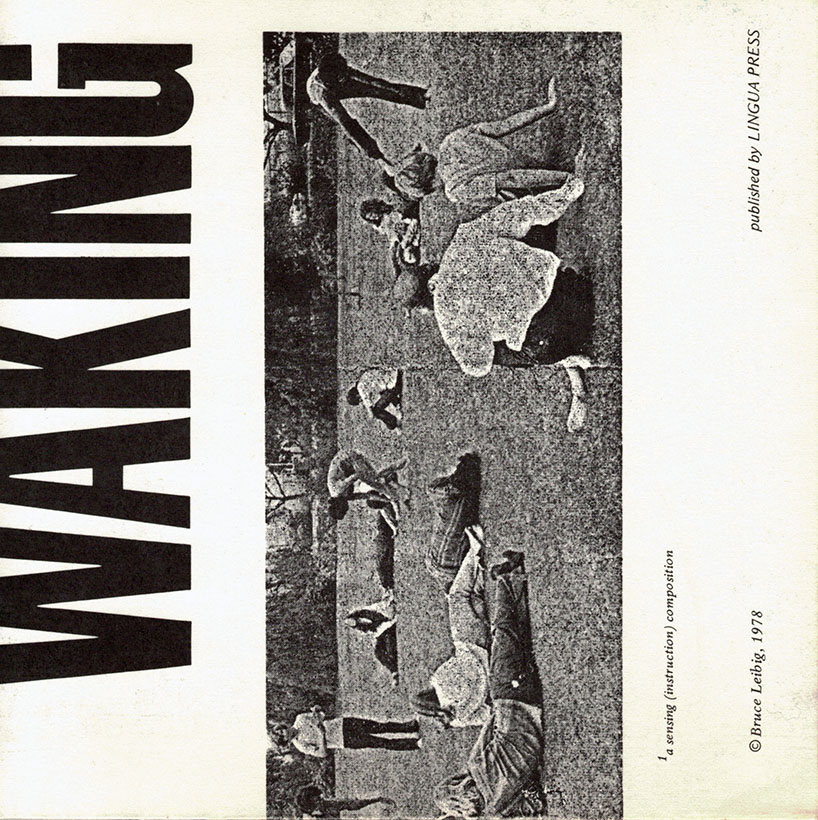Books: english
Books: english
in random order

Letterpress Revolution
While the stock image of the anarchist as a masked bomber or brick thrower prevails in the public eye, a more representative figure should be a printer at a printing press. In Letterpress Revolution, Kathy E. Ferguson explores the importance of printers, whose materials galvanized anarchist movements across the United States and Great Britain from the late nineteenth century to the 1940s. Ferguson shows how printers—whether working at presses in homes, offices, or community centers—arranged text, ink, images, graphic markers, and blank space within the architecture of the page. Printers' extensive correspondence with fellow anarchists and the radical ideas they published created dynamic and entangled networks that brought the decentralized anarchist movements together. Printers and presses did more than report on the movement; they were constitutive of it, and their vitality in anarchist communities helps explain anarchism’s remarkable persistence in the face of continuous harassment, arrest, assault, deportation, and exile. By inquiring into the political, material, and aesthetic practices of anarchist print culture, Ferguson points to possible methods for cultivating contemporary political resistance.

OEI #82-83 Art in the Age of Kleptomania
Jonas J. Magnusson, Cecilia Grönberg and 1 more
Aeron Bergman and Alejandra Salinas, co-editors at INCA Press (along with Irena Borić), are the guest-editors of this issue of OEI: it contains essays, artworks, and archival materials by 21 artists, theorists, writers, and artist-run spaces (mostly from the Americas).
The subject of the issue is art and neoliberalism, and it encompasses essays, images and other works by Dorothée Dupuis, Max Jorge Hindered Cruz, Luciano Concheiro, Yvonne Osei, Diego Bruno, John Riepenhoff, Suhail Malik, Good Weather, The Luminary, Bikini Wax, Beta-Local and more.

Euforia
This monograph explores the work and the artistic activities of Italian radical performer, poet, visual artist and feminist Tomaso Binga through a specific lexicon (Agora, Biographies, the Corporeal Nature of the Word, Correspondences, Geographies, Vaginal Value), and also features a selection of poems by the artist.
The volume explores the key passages of Tomaso Binga's artistic practice, and as such is divided into three macro areas. The first, purely textual, following institutional introduction by the President of the Fondazione Donnaregina per le arti contemporanee Angela Tecce, features texts by Eva Fabbris, Daria Khan, Quinn Latimer, Lilou Vidal, and Stefania Zuliani, as well as a conversation between the artist herself and Luca Lo Pinto. The second part brings together a series of short critical texts that offer an in-depth analysis of single works and small bodies of work by Tomaso Binga. These contents are further subdivided into six categories (Agora, Biographies, The Body of the Word, Correspondences, Geographies, Vaginal Value) with the aim of delving into the key areas of interest in Tomaso Binga's practice in chronological order. Critical contributions are thus provided by Marc Bembekoff, Barbara Casavecchia, Martina Cavalli, Chiara Costa, Anna Cuomo, Valérie Da Costa, Allison Grimaldi Donahue, Daria Khan, Émilie Notéris, Raffaella Perna, Antonello Tolve, and Andrea Viliani. The third and final part is dedicated to the artist's visual poems. Each poem is accompanied by an English translation, in several cases published here for the first time.
Embedded in the language of visual and sound poetry, the practice of Tomaso Binga (Bianca Pucciarelli Menna, born 1931 in Salerno) is based on an ironic, insightful questioning of the idea of gender. In her work, this theme is not only a generator of identity, but also a way of looking afresh at the social roles, rights and opportunities traditionally available to women. Her decision to work under a male pseudonym from 1971 onwards was intended to parody male privilege and to provoke a barbed reflection on the political dimension of what it is to be a woman. Her attitude has served as a key marker within the gender equality issues at the center of the debate raging amongst the younger generations.
Edited by Eva Fabbris, Lilou Vidal, Stefania Zuliani with Anna Cuomo.
Texts by Tomaso Binga, Eva Fabbris, Daria Khan, Quinn Latimer, Luca Lo Pinto, Lilou Vidal, Stefania Zuliani.

Appendix Project
Written in the course of the year following the publication of Book of Mutter, and inspired by the lectures of Roland Barthes, Anne Carson, and Jorge Luis Borges, Appendix Project collects eleven talks and essays. These surprising and moving performances, underscored by the sleeplessness of the first year of their child’s life, contain their dazzling thinking through the work of On Kawara, Roland Barthes, W.G. Sebald, Bhanu Kapil, Walter Benjamin, Theresa Hak Kyung Cha, Marguerite Duras, Marlene Dumas, Louise Bourgeois, Doris Salcedo, Jenny Holzer, and more.

Queer Ancient Ways: A Decolonial Exploration
Queer Ancient Ways advocates a profound unlearning of colonial/modern categories as a pathway to the discovery of new forms and theories of queerness in the most ancient of sources. In this radically unconventional work, Zairong Xiang investigates scholarly receptions of mythological figures in Babylonian and Nahua creation myths, exposing the ways they have consistently been gendered as feminine in a manner that is not supported, and in some cases actively discouraged, by the texts themselves.
An exercise in decolonial learning-to-learn from non-Western and non-modern cosmologies, Xiang's work uncovers a rich queer imaginary that had been all-but-lost to modern thought, in the process critically revealing the operations of modern/colonial systems of gender/sexuality and knowledge-formation that have functioned, from the Conquista de America in the sixteenth century to the present, to keep these systems in obscurity.
At the heart of Xiang's argument is an account of the way the unfounded feminization of figures such as the Babylonian (co)creatrix Tiamat, and the Nahua creator-figures Tlaltecuhtli and Coatlicue, is complicit with their monstrification. This complicity tells us less about the mythologies themselves than about the dualistic system of gender and sexuality within which they have been studied, underpinned by a consistent tendency in modern/colonial thought to insist on unbridgeable categorical differences.
By contextualizing these deities in their respective mythological, linguistic, and cultural environments, through a unique combination of methodologies and critical traditions in English, Spanish, French, Chinese, and Nahuatl, Xiang departs from the over-reliance of much contemporary queer theory on European (post)modern thought. Much more than a queering of the non-Western and non-modern, Queer Ancient Ways thus constitutes a decolonial and transdisciplinary engagement with ancient cosmologies and ways of thought which are in the process themselves revealed as theoretical sources of and for the queer imagination.

The Complete Text Would Be Insufferable / Language as Prosthesis
We begin with the image of an idea in ruin. A small field of assumptions disassembled. A question no longer in need of its mark. A thought not sure where it began. It starts from the body and language. The debris of these three words, crumbling already at and, did not break apart but congealed the separations once made. We start from a research (project) undone and just beginning.
Typesetting and design: Will Holder
Produced by: A.pass
Chloe Chignell works across choreography and publication taking the body as the central problem, question and location of the research. She invests in writing as a body building practice, examining the ways in which language makes us up.


Americón
Nico Vela Page’s Americón is a collection of poems in Spanglish that weaves a space for the queer, trans body to know the land, and itself, as extensions of each other. The land is the desert of Northern New Mexico, the forgotten Pan-American Highway, the space between our thighs, the quaking cordillera of Chile, the moans of elk, and the ripe fruit waiting to be picked. Through archive, attention, and erotic ecopoetics, Page’s debut collection of poems extends far across the page, the gender binary, language, and the Americas to find out who we are by asking where we are.

Sister Love: The Letters of Audre Lorde and Pat Parker 1974-1989
Poets Audre Lorde and Pat Parker first met in 1969; they began exchanging letters regularly five years later. Over the next fifteen years, Lorde and Parker shared ideas, advice, and confidences through the mail. They sent each other handwritten and typewritten letters and postcards often with inserted items including articles, money, and video tapes.
Sister Love: The Letters of Audre Lorde and Pat Parker 1974-1989 gathers this correspondence for readers to eavesdrop on Lorde and Parker. They discuss their work as writers as well as intimate details of their lives, including periods when each lived with cancer. Sister Love is a rare opportunity to glimpse inside the minds and friendship of two great twentieth century poets.

Trans Femme Futures: Abolitionist Ethics for Transfeminist Worlds
'Femme' describes a constellation of queer, gendered expressions that uproot expectations of what it means to be feminine. Building upon experiences of transformation, belonging and harm, this book is a transfeminist call for collective liberation.
Trans Femme Futures envisions the future through everyday actions that revolutionise our lives. Nat Raha and Mijke van der Drift discuss struggles around trans healthcare, the need for collectives over institutions, the importance of mutual care, and transfeminism as abolition.
The authors show how social change can be achieved through transformative practices that allow queer life to thrive in a time of climate, health, political and economic crises.
'A brilliant, useful, and immensely moving book that deals a critical blow to the epistemic austerity of our times' - Jordy Rosenberg

Enthusiasm
{ENTHUSIASM} is the 7th poetry collection by poet, artist, curator and vanguardist SJ Fowler. It follows highly-acclaimed collections including The Rottweiler's guide to the Dog Owner and Enemies: the selected collaborations of SJ Fowler. The book's 81 poems are intended as individual pieces in their own right, but are interlinked by subjects including battle and violence, infants and infancy, religion, economy and population, the self, modernity, and the past.

On Trials – A manual for the theatre of law
An exploration of the performativity of the law within Egypt's spectral legal reality.
The publication dissects material collected for Jasmina Metwaly and Philip Rizk's film On Trials, a work-in-progress that uses modes of documentary and fiction making. In it, they reflect on sites where legal proceedings take place. And listen to all manner of actors from within the realm of the law including, lawyers, a TV camera operator who frequents courtrooms, a former inmate, on whose body the legal specter has left unutterable marks, and tailors who specialize in uniforms.
Born to an Egyptian father and a Polish mother, Jasmina Metwaly is a Cairo-based artist and filmmaker, and member of the Mosireen collective. She likes to work with people and their histories, texts, archives, images, scripts and drawings. She is interested in how stories create stories, and how they leave the space of one reality and enter another, intertwining the boundaries of both. Rooted in performance and theatre, her works focus on process-based practices that have a social function that generates tension between participants and audiences.
Filmmaker, writer and freelance journalist Philip Rizk was born in Germany, raised in Egypt and is based in Cairo. His practice has moved beyond the documentary mode that directly engages with realities of historical moments, allowing the documented image to be infiltrated by imaginary worlds. Rizk is part of the video collective Mosireen.

Klosterruinenzines
Anna M. Szaflarski, Simone Fattal and 2 more
Four zines, documenting and continuing a series of four exhibitions that took place last summer, also known as the summer of 2021 at Klosterruine Berlin. Digging up what’s always already left behind, this series reframes the exhibition as an excavation site and engages archeology as a speculative and aesthetic procedure. A map, a notebook, a calendar and a dream diary, these four zines allow you to become your own archeologist.

chop: a collection of kwansabas for fannie lou hamer
chop is a collection of poems that center on the life and work of proto-feminist and civil rights activist, Fannie Lou Hamer.
A Mississippi native, Treasure Shields Redmond is a poet, speaker, diversity and inclusion coach, and social justice educator. In 2016 she founded her company, Feminine Pronoun Consultants, LLC. Even though Treasure is completing a PhD in English Literature and Criticism, is a published writer, gifted veteran educator, and has spoken on stages all over the U.S. and in Europe, she uses her humble beginnings in the federal housing projects in Meridian, Mississippi to fuel her passion for helping college-bound families navigate college admissions painlessly and pro tably, and o ering perceptive leaders creative diversity and inclusion facilitation. Additional information on her poetry, writing, and multidimensional practice are available at: www.FemininePronoun.com.

La Captive
In the fifth published title of the Decadent Editions series, Christine Smallwood explores Chantal Akerman’s adaptation of Marcel Proust’s The Prisoner, the fifth volume of In Search of Lost Time, in a text that moves elegantly between Akerman’s films, Proust’s novel, and Smallwood’s own life.

Eat Your Mind (paperback)
The first full-scale authorized biography of the pioneering experimental novelist Kathy Acker, one of the most original and controversial figures in 20th-century American literature.
Kathy Acker (1947–1997) was a rare and almost inconceivable a celebrity experimental writer. Twenty-five years after her death, she remains one of the most original, shocking, and controversial artists of her era. The author of visionary, transgressive novels like Blood and Guts in High School ; Empire of the Senses ; and Pussy, King of Pirates , Acker wrote obsessively about the treachery of love, the limitations of language, and the possibility of revolution.
She was notorious for her methods—collaging together texts stolen from other writers with her own diaries, sexual fantasies, and blunt political critique—as well as her appearance. With her punkish hairstyles, tattoos, and couture outfits, she looked like no other writer before or after. Her work was exceptionally prescient, taking up complicated conversations about gender, sex, capitalism, and colonialism that continue today.

The Last Sane Woman
A beguiling debut novel about friendship and failure, written with unusual craft and spryness by an acclaimed poet
Nicola is a few years out of a fine arts degree, listless and unenthusiastically employed in London. She begins to spend her hours at a university archive dedicated to women's art, because she 'wants to read about women who can't make things'.
There she discovers one side of a correspondence beginning in 1976 and spanning a dozen years, written from one woman – a ceramics graduate, uncannily like Nicola – to her friend, who is living a contrasting and conventionally moored life. As she reads on, an acute sense of affinement turns to obsession, and she abandons one job after another to make time for the archive.
The litany of coincidences in the letters start to chime uncomfortably, and Nicola's feeling of ownership begets a growing what if she doesn't like what the letters lead to?

Public Health in Crisis
Dimitra Kondylatou, Nicolas Lakiotakis and 2 more
Epidemics and pandemics undermine societies and highlight the vulnerability of relations people have created to the land, other species, and each other. This book presents fragments of disease management in the Mediterranean from the 15th-century onwards and in the Aegean Archipelago in the last two centuries. From religious to medical approaches to the Bubonic Plague, through the creation of lazarettos, to the famine in occupied Syros, to ghost ships drifting on the Mediterranean: citizens are forced to avoid citizens. Public health in crisis: confinement versus mobility, awakening memories of totalitarian regimes.
CONTENTS
Impending Arrivals by Dimitra Kondylatou
Cruises to Nowhere
Covid-19 stricken Ships
Ghost Ships drifting on the Mediterranean
Suspended Arrivals by Dimitra Kondylatou
Le Corbusier Confined
Venice, Lazaretto and Black Death
Confined Spaces by Dimitra Kondylatou
Religious versus Medical Approaches to the Plague
Public Health and Public Order
Architectures of Control
The Lazaretto at Syros
Confinement and Totalitarianism, Famine in Occupied Syros
by Nicolas Lakiotakis
Panic Room. Waiting Room. Island.
by Hulya Ertas

Side Magazine #01 – The Professor
The first issue of the editorial discursive space for the Bergen Assembly triennial, conceived by Saâdane Afif, explores the identity, role and position of the Professor.
Side Magazine is conceived as a site of research for the fourth edition of Bergen Assembly convened by Saâdane Afif. Yasmine d'O., who has been invited as curator of the upcoming edition, will be the executive editor.
Side Magazine is dedicated to the seven characters in The Heptahedron, a play written by the French poet, essayist, and scholar Thomas Clerc in 2016. In order of apparition these characters are the Professor, the Moped Rider, the Bonimenteur, the Fortune Teller, an Acrobats, the Coalman, and the Tourist.
The first issue of Side Magazine is dedicated to the figure of the Professor. It features seven articles, each of which explores the identity, role, and position of the Professor. Contributors include Uli Aigner, Lili Reynaud-Dewar, Jörg Heiser, Christian Nyampeta, Marjorie Senechal, and Vivian Slee.
Seven issues of Side Magazine will be released in the run up to the opening of Bergen Assembly 2022, opening September 8. A special eighth issue will be published after the opening days. This, combined with the existing seven issues as a collection, constitute the exhibition catalogue and guide.
Saâdane Afif (born 1970 in Vendôme, France) creates installations made up of unexpected encounters between objects. These creations, of uncertain status, oscillate between function and symbol, between art and design, and provoke shifts of meaning that engage a reflection on today's industrial society.

The Significance and Relevance of Early Modern Indian Painters to the Contemporary Indian Art
The Significance and Relevance of Early Modern Indian Painters to the Contemporary Indian Art, written in 1971, reevaluates the legacies of painting inherited by the artist Nilima Sheikh.
Drifting between two inadequate models, one an import of British Colonialism, and another desperate for an identification as "Indian", the artist engages with the works of Raja Ravi Varma, Abanindranath Tagore, Amrita Sher-Gil, Nandalal Bose, and Jamini Roy, as well as the critical and art historical writing surrounding these practices, to offer a revaluation of these legacies and a possible way forward—one that she would go on to articulate in her own decades-long engagement with painting.
Published here for the first time, The Significance and Relevance of Early Modern Indian Painters to the Contemporary Indian Art was written as part of Nilima Sheikh's Master's in Painting at the Faculty of Fine Arts, Maharaja Sayajirao University of Baroda. The complete facsimile of this dissertation is accompanied by a recent interview with the artist by Nihaal Faizal and Sarasija Subramanian.

Tense (Silver Edition)
Tense is a never-realised publication, written and composed by Lucy Lippard and Jerry Kearns in 1984, that only now has been released in a very limited run on our imprint. The book accompanied the exhibition Top Stories, which took a closer look at the 29 issues of the prose periodical with the same title, founded in the late 1970s by Anne Turyn.
Top Stories was dedicated to fiction by emerging women artists and writers from that time. Tense was originally intended to become part of the series as well, but never made it to print. It was only recently – during the making of the exhibition at Amsterdam’s Kunstverein – that the original mock-up was retrieved from the editor’s archives and finally sent off to the printer.

Poetry Collection
Chloe Chignell, Lili M. Rampre
This publication is a collection of poems written through a method called Transtexting. Transtexting explores the body’s implication in poetic production positioning the body and its movement as a listening aid, acting as a filter; a net capturing words, syntax and sounds.

La rabbia / Anger
In a first-time English language translation by Cristina Viti to mark the poet’s centenary, Tenement Press will publish Pier Paolo Pasolini’s groundbreaking, filmic work of prose and verse, La rabbia / Anger.
Why is our life dominated by discontent, by anguish, by the fear of war, by war? In order to answer this question I have written La rabbia, not following a chronological or perhaps even a logical thread, but only my political reasons and my poetic sense. - Pier Paolo Pasolini
Written in response to producer Gastone Ferranti’s request for his comments on a set of newsreel items, the poet would respond with a montage of his own. Via the unfolding of a chrysalis of images, in La rabbia (1963), Pasolini’s lens pans over Soviet repression in Hungary; the Cuban revolution; (the utopian object of) space exploration; political imprisonment in Algeria; the liberation of the former European colonies; the election of Pope John XXIII; the prospect of revolution in Africa and the Middle East; in Europe and in Latin America... Here, we’ve a panoply of photorealist intimations of Pasolini’s ‘poetic sense.’ The death of Marilyn Monroe crests as an idea in this tidal pooling of reflections, and as the poet’s line lights out for conceptual rhymes and counterpoints.
In Viti’s translation, the weave of prose and poetry that forms La rabbia portrays the vitality of Pasolini’s work in its capacity to speak to both the specifics of his contexts, the character of our own present tense, and the ironic fact of a life lived against the gulf of discontent in its myriad forms. Here, we’ve a startling confrontation of a revolutionary struggle in stasis set in lines that crystallise a rallying call against blindness. ‘I’ll not have peace, not ever,’ he writes. A lucid acceptance of the poet’s restlessness, and a marker for Pasolini’s commitment to a solidarity with the oppressed that we find reaffirmed on every page, in La rabbia the poet charts how ‘the powerful world of capital takes an abstract painting as its brash banner’ in this unravelling of ‘crisis in the world.’
